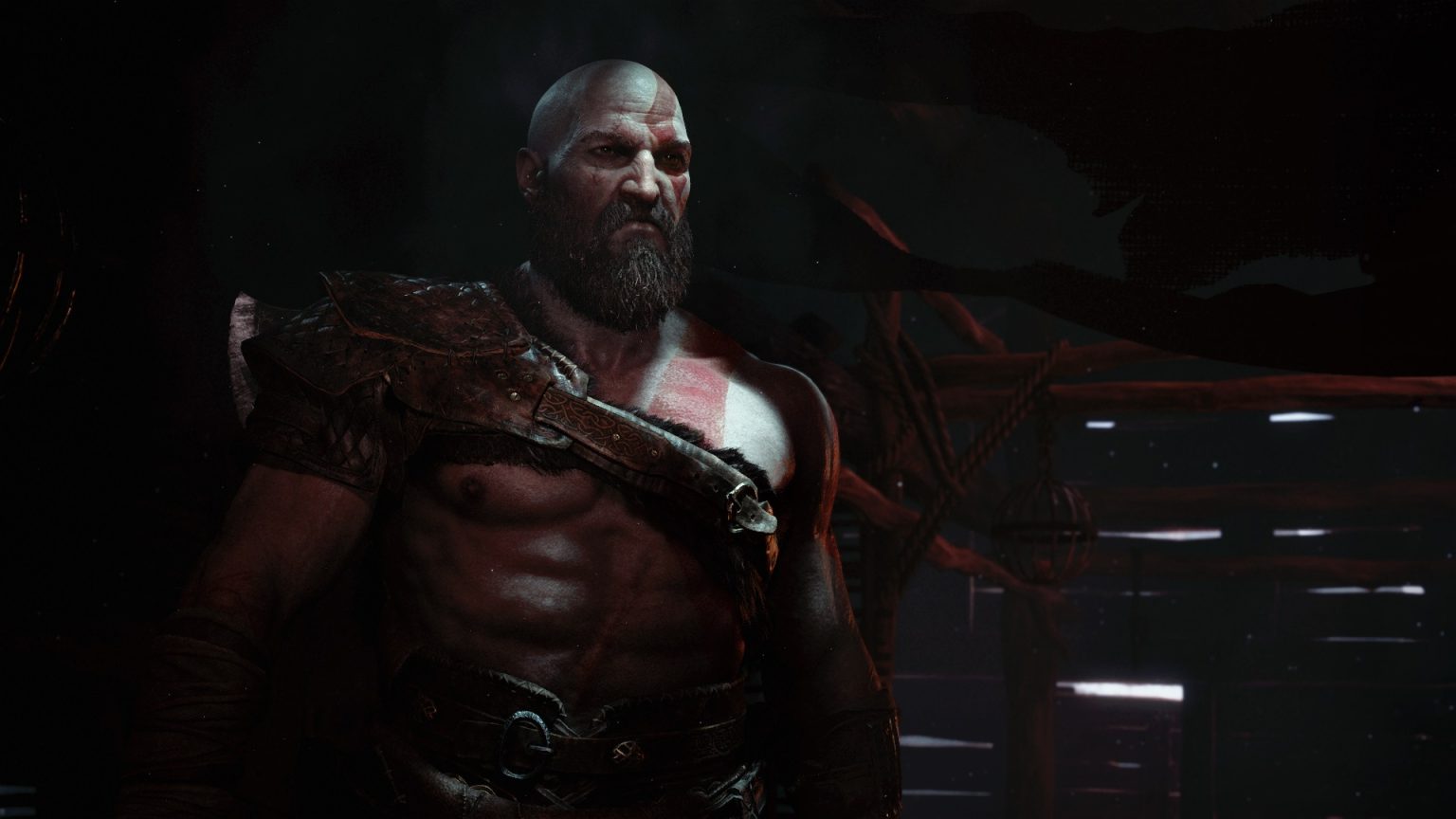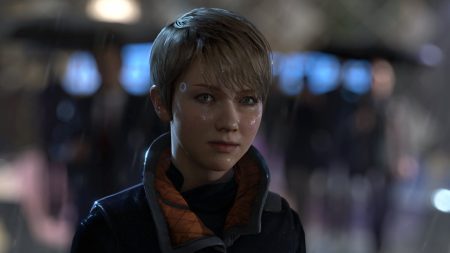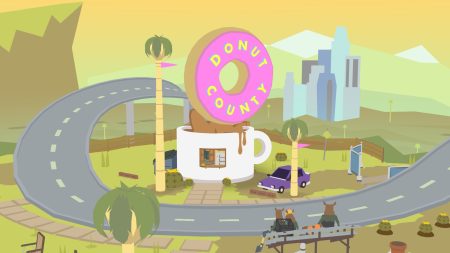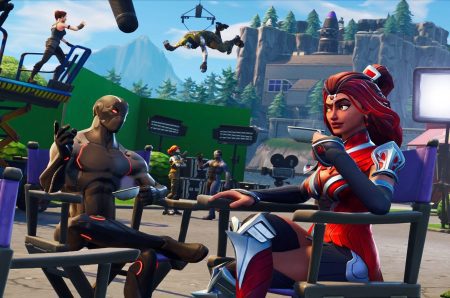The Allure of AAA Pulls Me Back In
2018 was an atypical year for me in media consumption. I took a bit of a sabbatical from playing games for the first half of 2018 and carved out time to read. I hadn’t read for leisure at all during college (I graduated in 2017), but finishing Dark Souls III at the opening of this year inspired me and put me back on the fantasy train. I finished off quite a few epic, doorstopper fantasy novels this year, including Mistborn (both eras) and The Stormlight Archive (what’s out so far, at least). I barely watched any TV, and didn’t go to a lot of movies, either.
But summer turned to autumn, and the lure of the annual stream of AAA fall releases pulled me back into the loop. It’s funny that Luke’s entry mentioned eschewing AAA-titles for indie games, as I did almost the exact opposite in terms of overall output. Listed below are the notable 2018 releases (and the platforms I played them on) that I managed to find time for this year:
- God of War (PlayStation 4)
- Super Smash Bros. Ultimate (Nintendo Switch)
- Divinity Original Sin II: Enhanced Edition (PC)
- Celeste (Switch)
- Monster Hunter: World (PS4)
- Shadow of the Colossus (PS4)
- Pillars of Eternity II: Deadfire (PC)
- Call of Duty: Black Ops 4 (PS4)
- Marvel’s Spider-Man (PS4)
- Dark Souls Remastered (PS4, Switch)
- Batman: The Enemy Within (PS4)
- Shadow of the Tomb Raider (PS4)
- MLB The Show 18 (PS4)
- Madden NFL 18 (PS4)
- Slap City (PC)
- Pathfinder: Kingmaker (PC)
- Icons: Combat Arena (PC)
So, yes, I’ll cop to being a fairly generic gamer, but I’ve got my share of non-standard genre fare too. I’ll touch upon most of these, but for now—here, in no particular order (for the most part), are my top five games of 2018.
Shadow of the Tomb Raider (PS4)
Minor spoilers for Shadow of the Tomb Raider below.
I’ve always had a soft spot for the Tomb Raider reboot series, despite its numerous flaws and shortcomings. I personally enjoyed this series more than Uncharted, I think maybe because of how jagged, raw, and incomplete the games feel as a whole. Narratively, Uncharted ascertained what it wanted to be and executed it to near-perfection (especially from 2 onwards), while Crystal Dynamics never really stuck the landing as they tried to transition the franchise from over-the-top campy action to the quasi-versimilitudinous narrative environment that became standard in the seventh and eighth generation of consoles.
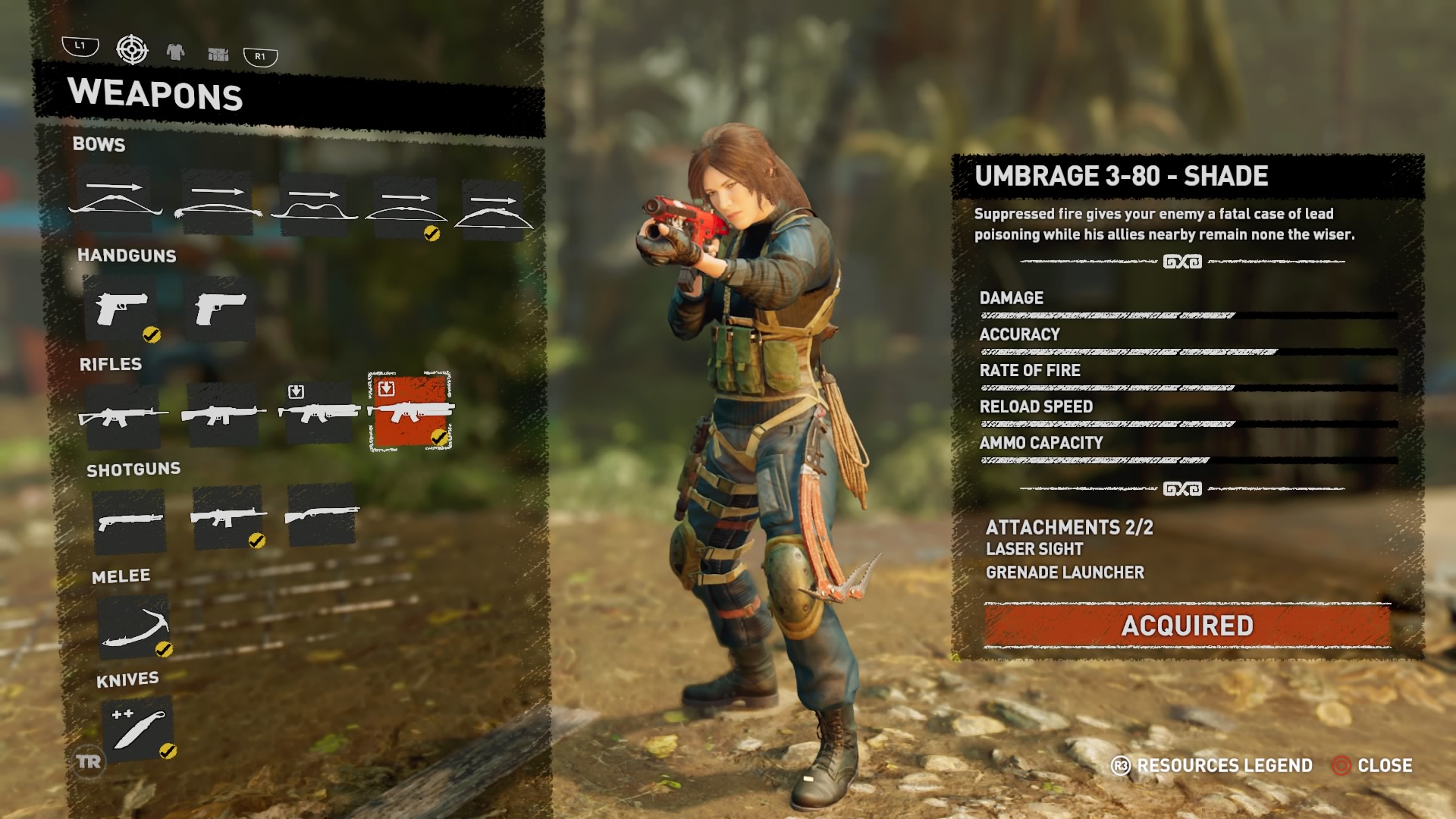
Shadow had a semi-troubled development that involved Crystal Dynamics, the creators of Tomb Raider (2013) and Rise of the Tomb Raider (2015) passing the torch to the capable hands of Eidos Montreal. While the skeleton of the series was still intact, there was an unavoidable rushed sense to the final product, from the heavily recycled generic NPCs, to the limited number of stock animations for Lara, to the overall dissatisfying conclusion to Lara’s character arc and development. I can’t argue with the dampened critical reception for Shadow compared to the prior entries in the series.
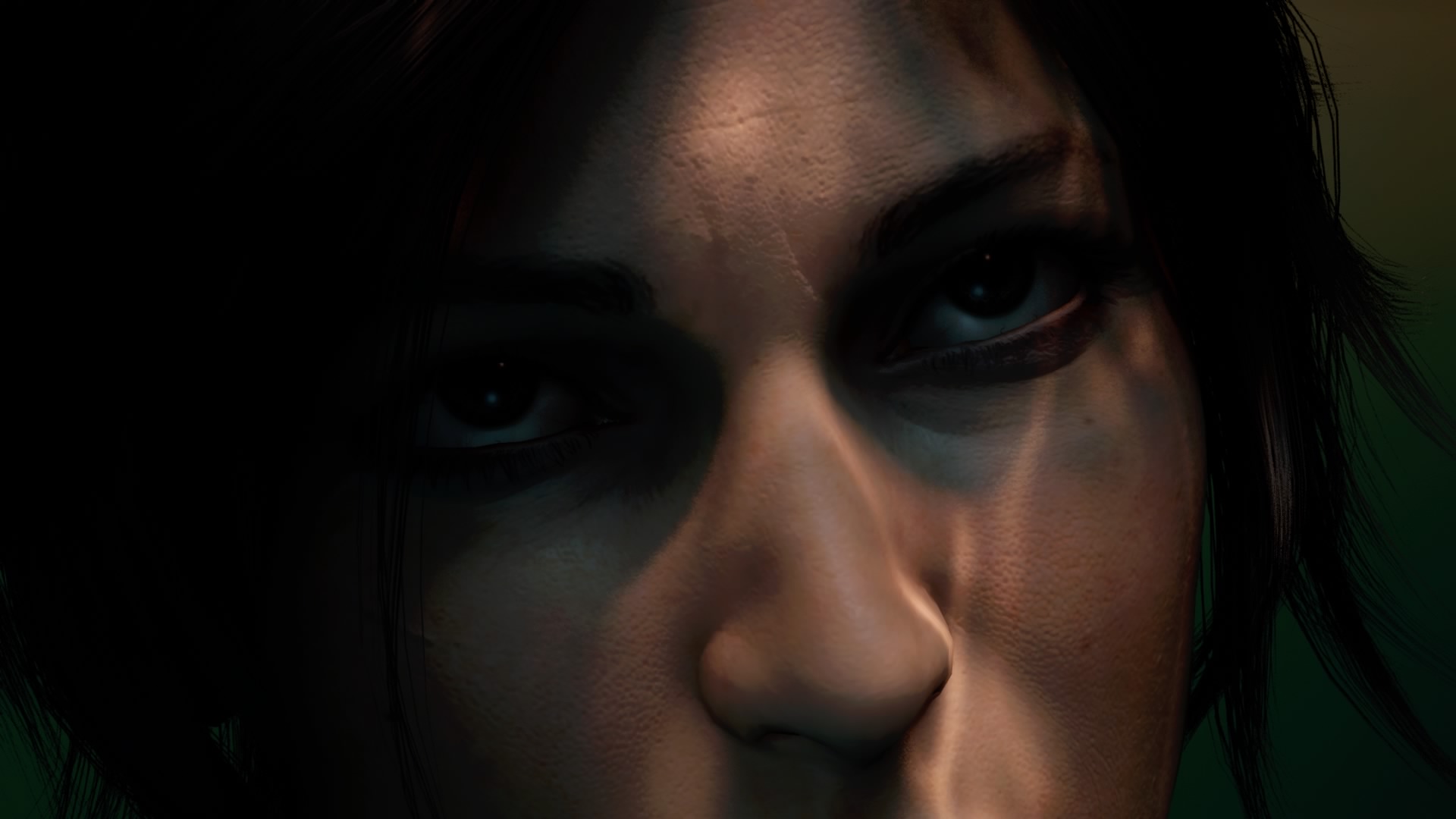
That being said, while Shadow dropped the ball in a narrative sense regarding Lara’s development, it didn’t drop the ball on Lara’s development as maybe the most lethal guerilla-warfare specialist in recent video game memory. I’ll just admit it: a big part of my love for this trilogy is that it’s honestly just so damn satisfying to kill people as Lara. There’s something incredibly satisfying about the way Lara moves in this game, from her predatory stalking animation, to her visceral stealth kills, to the brutal climbing axe move where she shanks and then throws her opponent to the ground. And the slow shift throughout the game, as Trinity soldiers and local militia go from mocking and being derisive of how a postgraduate archaeology student could have possibly gotten the better of their late comrades, to having genuine terror towards the end of the game as Lara barrels towards Rourke in a cold, revenge-driven fury, is just great. Lara’s final rampage—she had one in each of the games prior—is also excellent (even if the emotional conclusion of it is just so, so off-base from what it should have been… but that’s an article for another time).
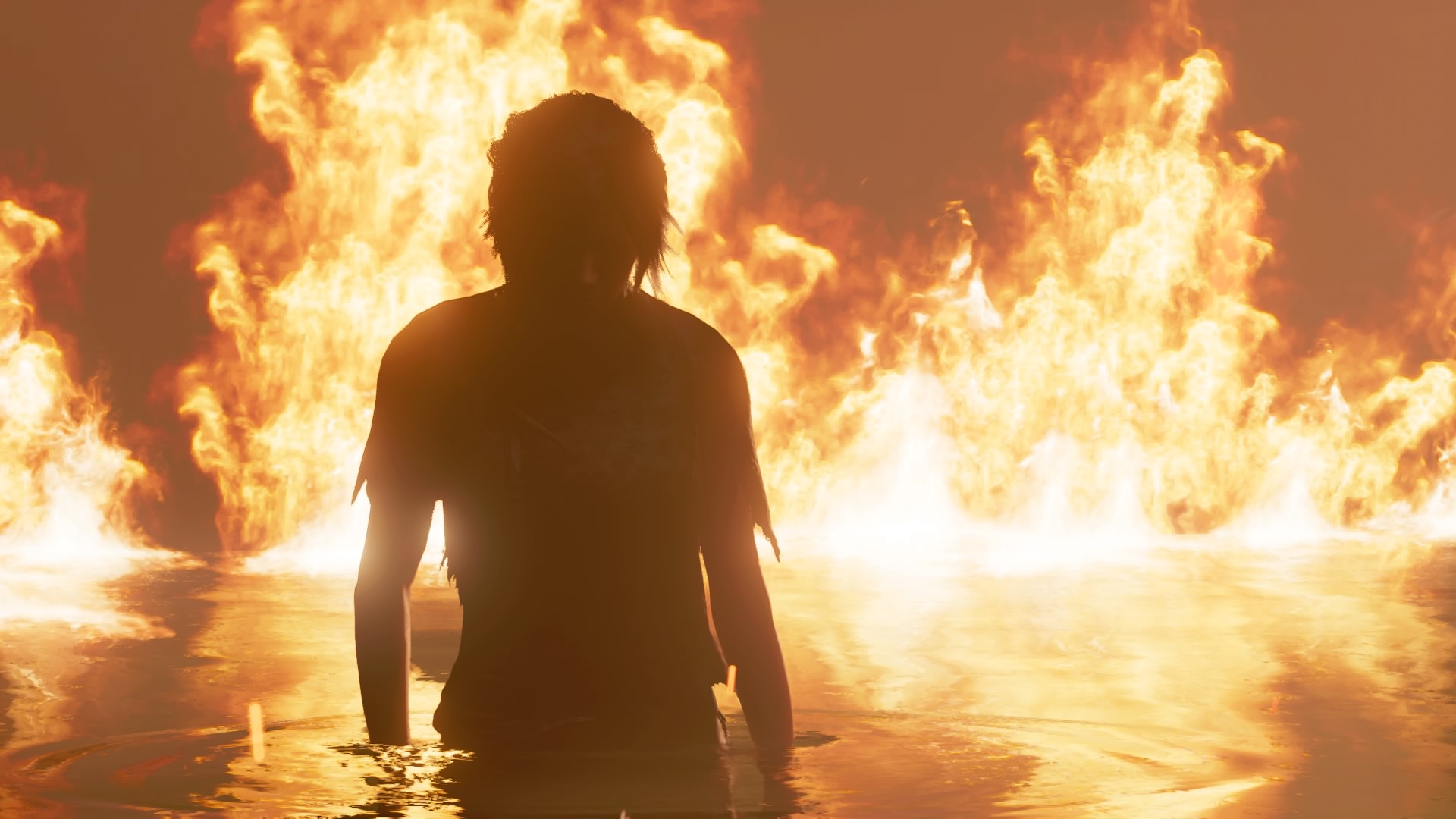
Is Shadow a disappointing conclusion to a trilogy that I always wanted more for? In many ways, yes—but it’s also incredibly satisfying, in spite of all of its inconsistencies. It’s a game I spent a lot of time with that I greatly enjoyed yet simultaneously wanted so much more from—and that’s enough for it be one of my favorite games of the year.
Batman: The Enemy Within (PS4)
Spoilers for Batman: The Telltale Series and Batman: The Enemy Within below.
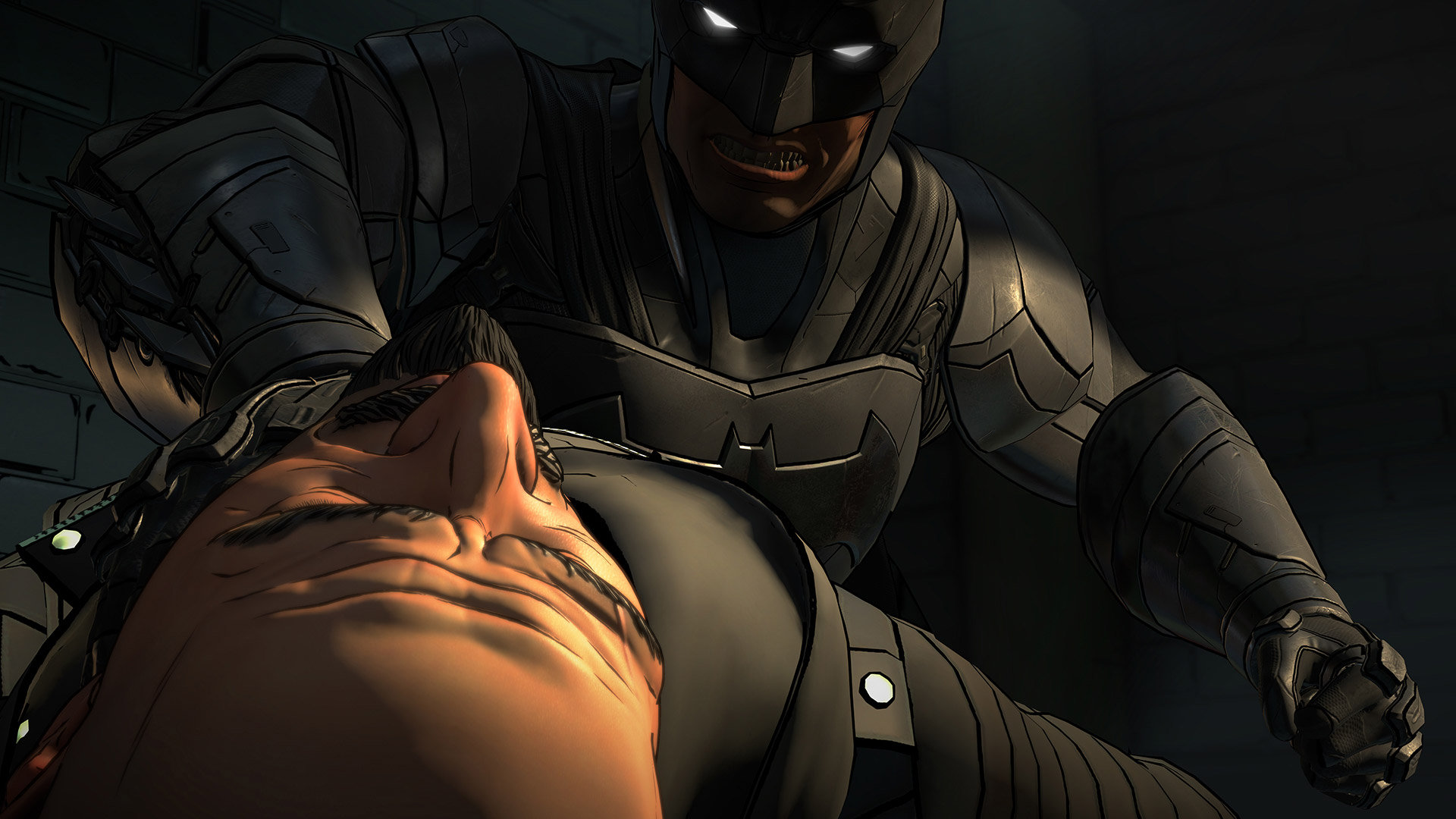
Three of this episodic adventure’s five episodes were released in 2017, so one might argue that this is more of a 2017 game than a 2018 one. But writing about a Telltale game before it’s reached its conclusion is probably doing it a disservice, so I decided to wait until the last two episodes were released to give it a proper postmortem. Batman didn’t exactly solve many of my longstanding complaints about Telltale—outdated, janky animations, a formula that basically remained unchanged for years, and a nagging sense that none of your choices quite gave you the narrative freedom that they purported to offer.
Still, it’s been a turbulent couple of years for Batman fans. Personally, I despised Zack Snyder’s cinematic representation of Batman from Batman v Superman, and I got baited to hell and back by Tom King’s Batman #50, which teased us with a Bruce and Selina wedding before it all fell apart again (I’m still tilted about that, though to be fair, it does look like King’s run will eventually end with them back together—he’s halfway through what was planned to be a ~100-issue run). And Gotham continued to be a surprisingly entertaining mess, (I haven’t seen Titans yet, but I’ve heard some stuff goes down there too).
On the other hand, I’ve felt that the Telltale games have done a great job of presenting a fairly balanced and standard Bruce/Batman while still showing off some creative new angles. This is a younger Batman, and Telltale has us spending far more time finagling and maneuvering the social strata of Bruce Wayne’s life. I’ve always felt that this has been a relatively underexplored aspect of Batman overall, as Bruce Wayne is someone who has considerable social and political pull in Gotham (a funny Twitter joke made the rounds this year that poked fun at this apparent contradiction). Maintaining Bruce’s public image as he is assaulted on all fronts—from within, as his allies falter; physically and mentally, as he faces off against his foes as Batman; and publicly, both as Bruce Wayne and Batman as both continue to see the blame pinned on them for the woes of the city—makes The Enemy Within feel like a delightful tightrope walk on all fronts.
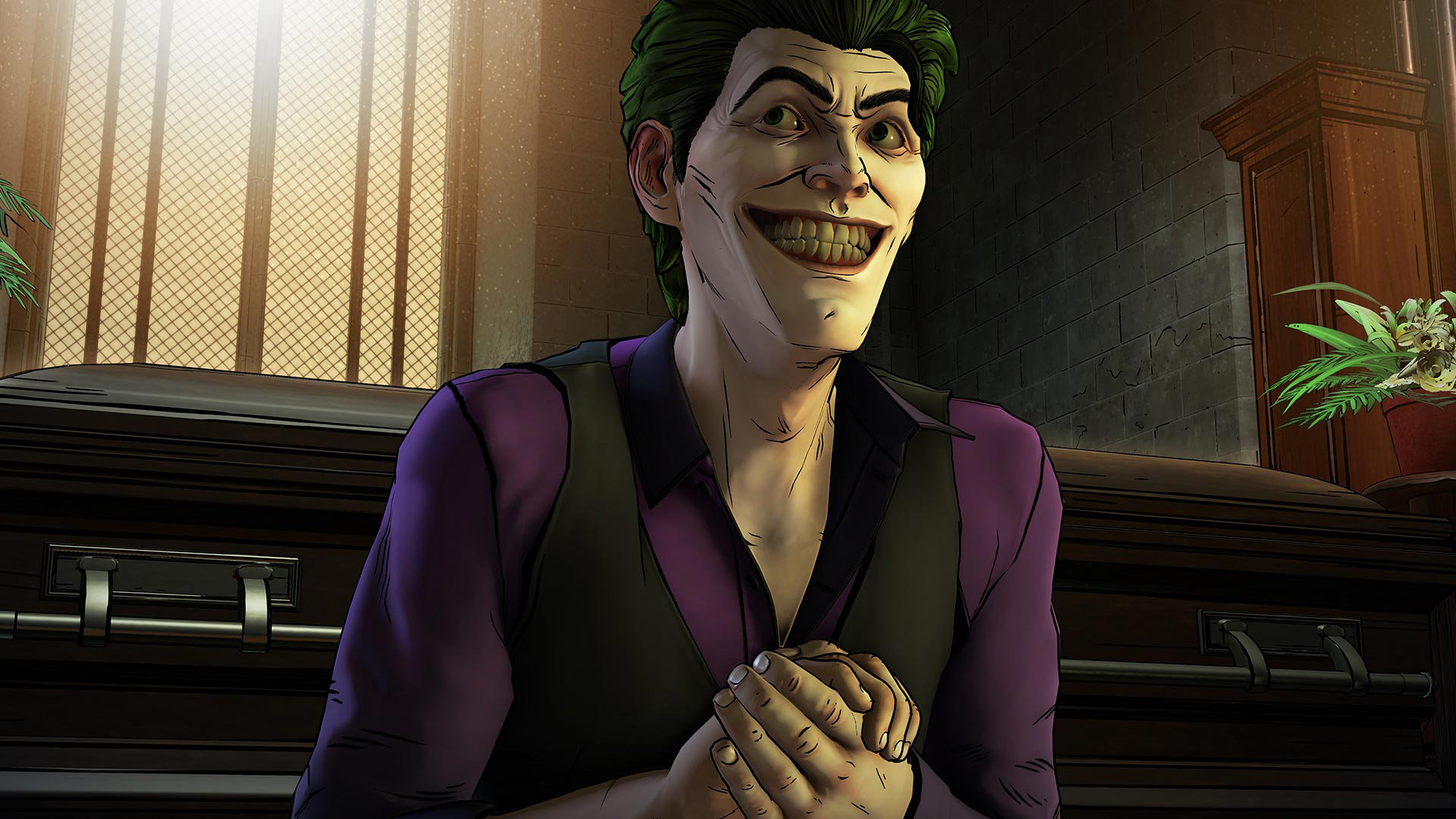
That’s not to mention the excellent portrayal of the Joker, in this game simply an amnesiac Arkham escapee named John Doe. The fact that John can be startlingly friendly and sweet, plus the fact that he isn’t the Joker yet–-despite displaying frighteningly Joker-like tendencies—makes the constant game of trying to quell John’s moods and convince him you’re still “best friends” with him incredibly tense. It’s hard to escape the feeling that John could become the Joker at the drop of a hat. In fact, I actually played around John’s feelings much differently than most—John can either become a vigilante, inspired by Batman, or a villain, hating him and becoming his archenemy. For most, he was a villain—for me, a vigilante—and watching playthroughs later made me realize how differently my playthrough could have gone.
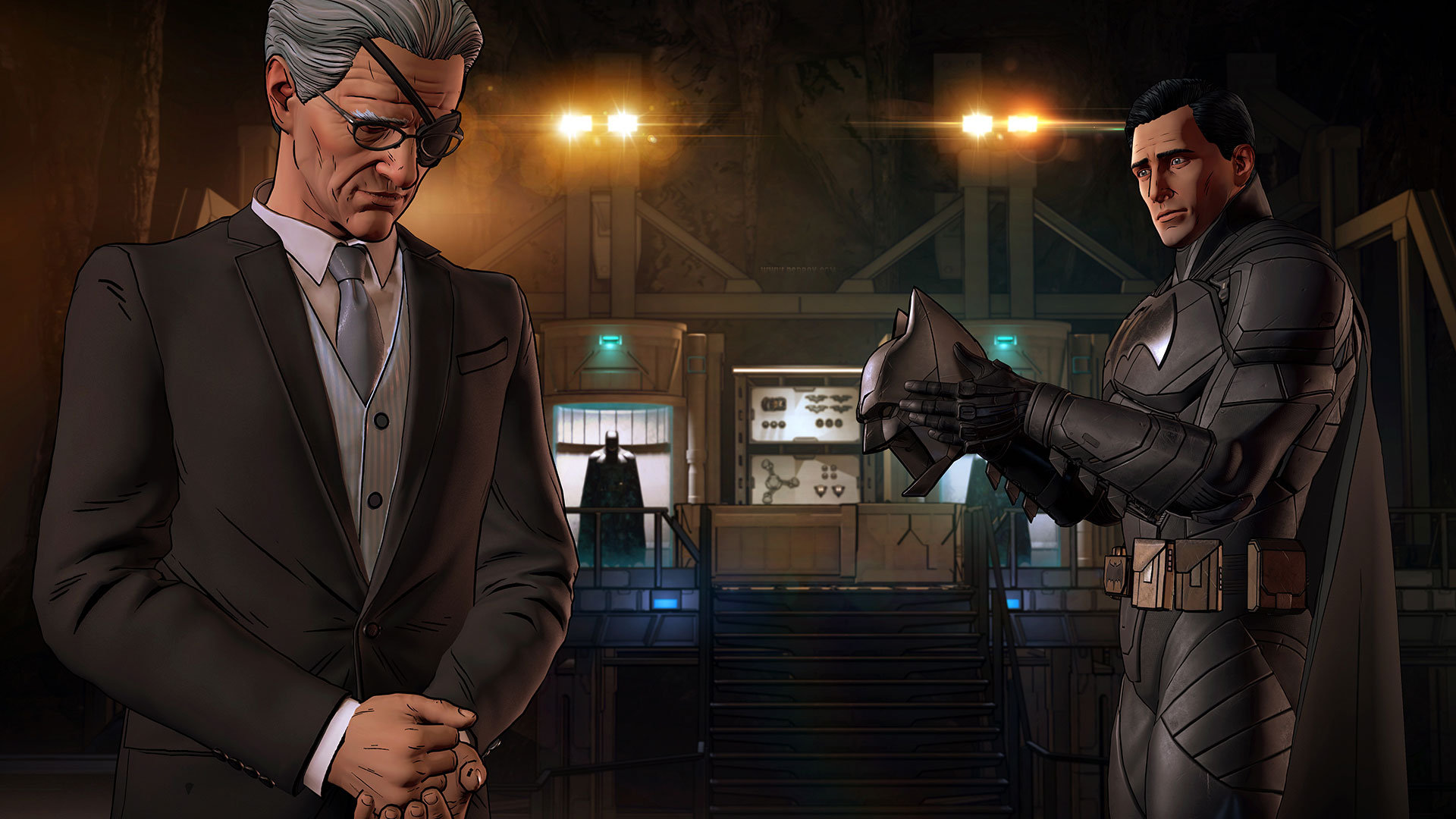
Telltale’s Batman was a great adaptation. It was tailored perfectly for its medium, and it treated every character with respect while introducing changes that were exciting and intriguing (one in particular from the first game was a frankly great rewrite of a character that I had never felt was especially intriguing in the comics). And, to me at least, it signals the last Telltale game I will probably ever play. At least it was a great ride.
Also, Laura Bailey in everything is great, but Laura Bailey as Selina was just amazing.
Pathfinder: Kingmaker (PC)
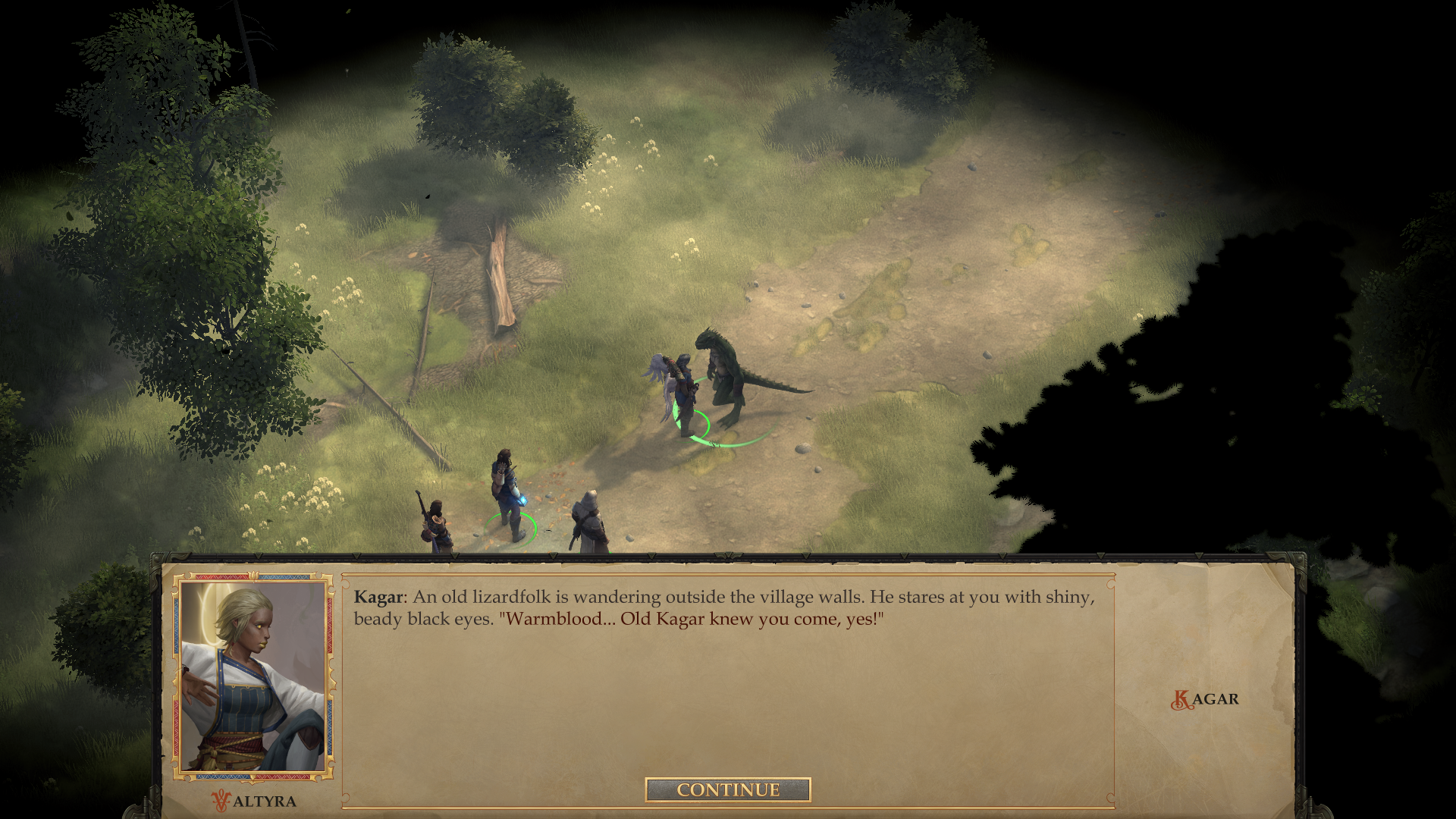
I won’t make excuses for Kingmaker, a game that currently sits at a middling 71 on Metacritic. Complaints about the game launching riddled with bugs and having a ridiculous difficulty curve are numerous enough that I’m assuming they are accurate. That being said, I didn’t play this game until several patches in, where I was blessed with a relatively bug-free playthrough (I also played the game on medium difficulty).
I played a good amount of Pathfinder in college but haven’t played a consistent campaign since I entered the workforce. I’m fairly knowledgeable in the 3.5 system and have played a lot of CRPGs as well, and Kingmaker genuinely feels like it has some of the best gameplay and writing of any of the games in the genre I’ve played. The combat is PF 3.5 to its core— challenging at lower levels but much more comfortable as the game progresses. The writing is surprisingly great, and feels a lot less lore-heavy and dry than some other games I’ve played recently (I’m looking at you, Pillars of Eternity, though I’ll admit I have a higher level of familiarity with the Pathfinder setting). Companions felt realistic and varied, and a plot that was more localized and less “save the entire world” was a welcome change.
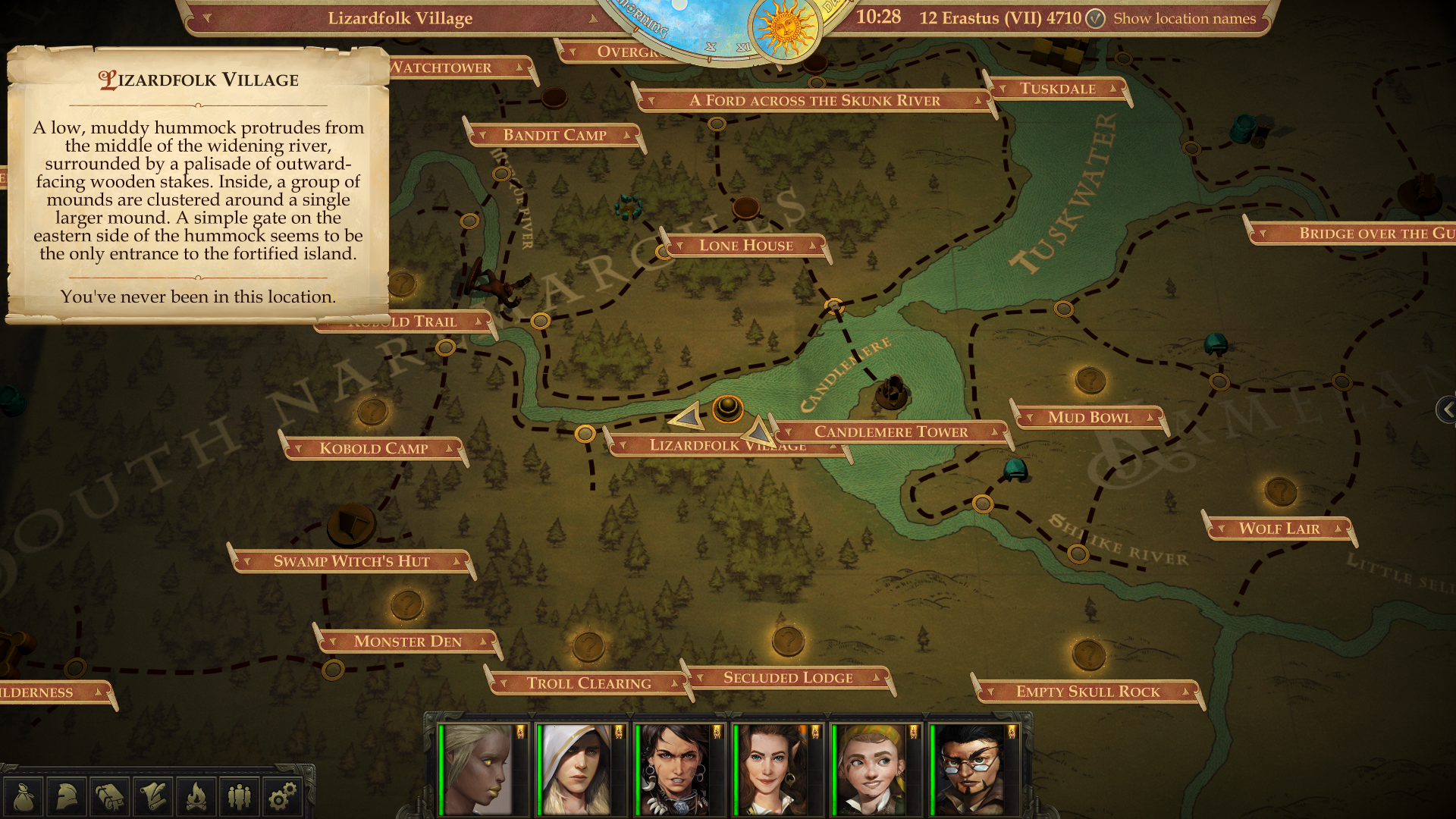
On top of that, the kingdom-building aspect was excellent. With a great implementation of an in-game timer that counts down the passing days, Kingmaker always had me feeling like I was making improvements to my barony while simultaneously making me feel like I was always just missing out on perfection, with just enough complexity to keep it engaging without being overbearing.
I know that a lot of people were burned by this game early on, and I don’t want to excuse the developers (Owlcat Games) for releasing what was basically an unfinished, unrefined product. But if you’re a CRPG fan, I think you’re doing yourself a disservice if you miss out on Pathfinder: Kingmaker, even amongst the extremely strong crop of recent CRPGs.
Shadow of the Colossus (PS4)
Spoilers for Shadow of the Colossus below.
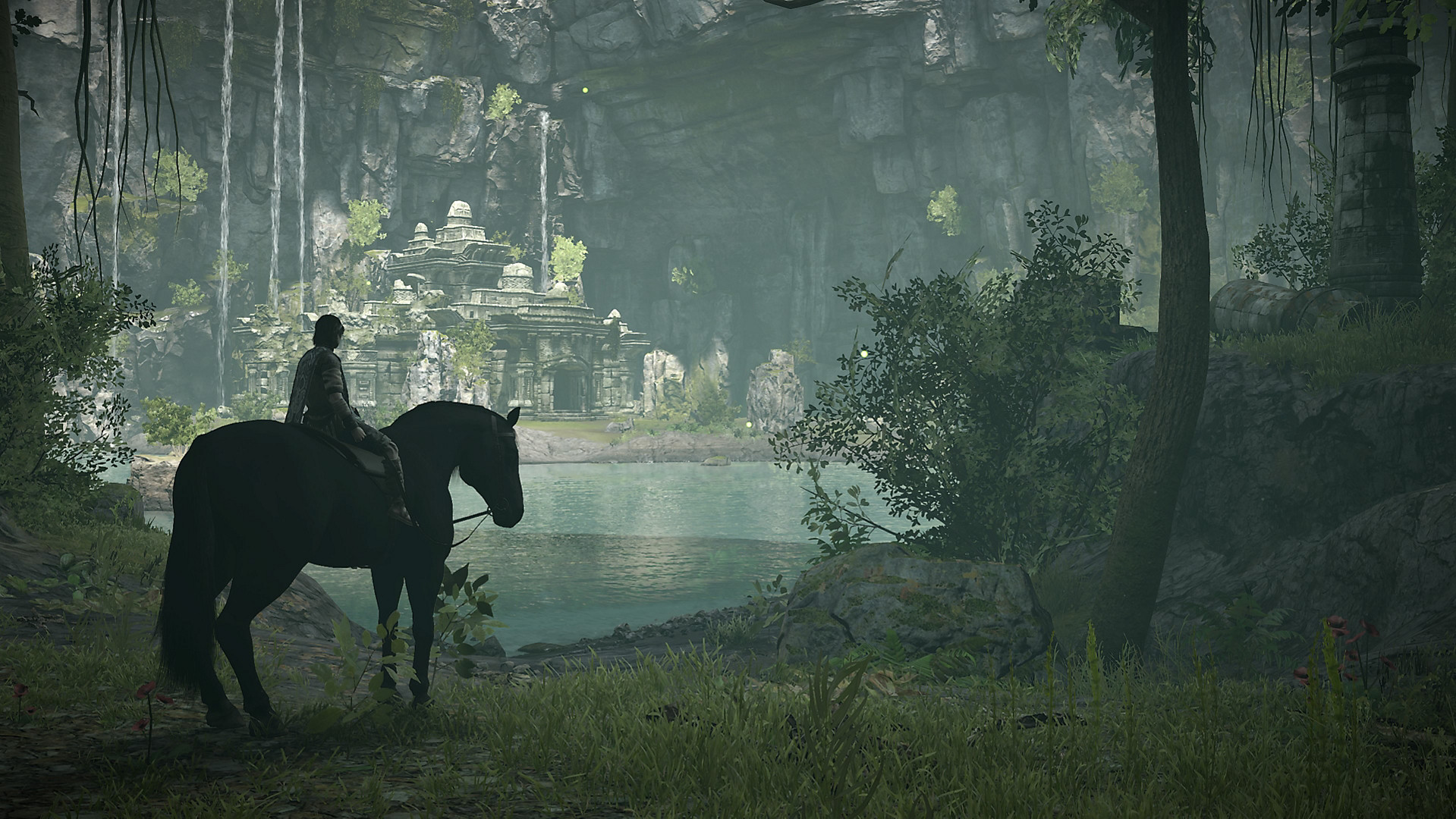
Yes, another Shadow game. Also, a remake of the PS2 classic that was also remastered on the PS3. But this is a different beast. A from-the-ground-up remaster by Bluepoint Studios, Shadow of the Colossus (henceforth referred to as SotC) somehow enhances the majesty and awe of the original. I’ll cop to my bias, as the PS2 game was already one of my favorite games of all time, but this remaster is the definitive way to experience this game.
And an experience it is. The new lighting, the bevy of new filters that you can select to tune the game’s aesthetics to your preference, and the redone models and textures are all gorgeous. It’s an impressive remake that’s put Bluepoint Studios on the map for me— personally, I’m holding out hope for a Demon’s Souls remake. But because this game remains so true to the spirit of the original, I want to talk about that experience on the whole.
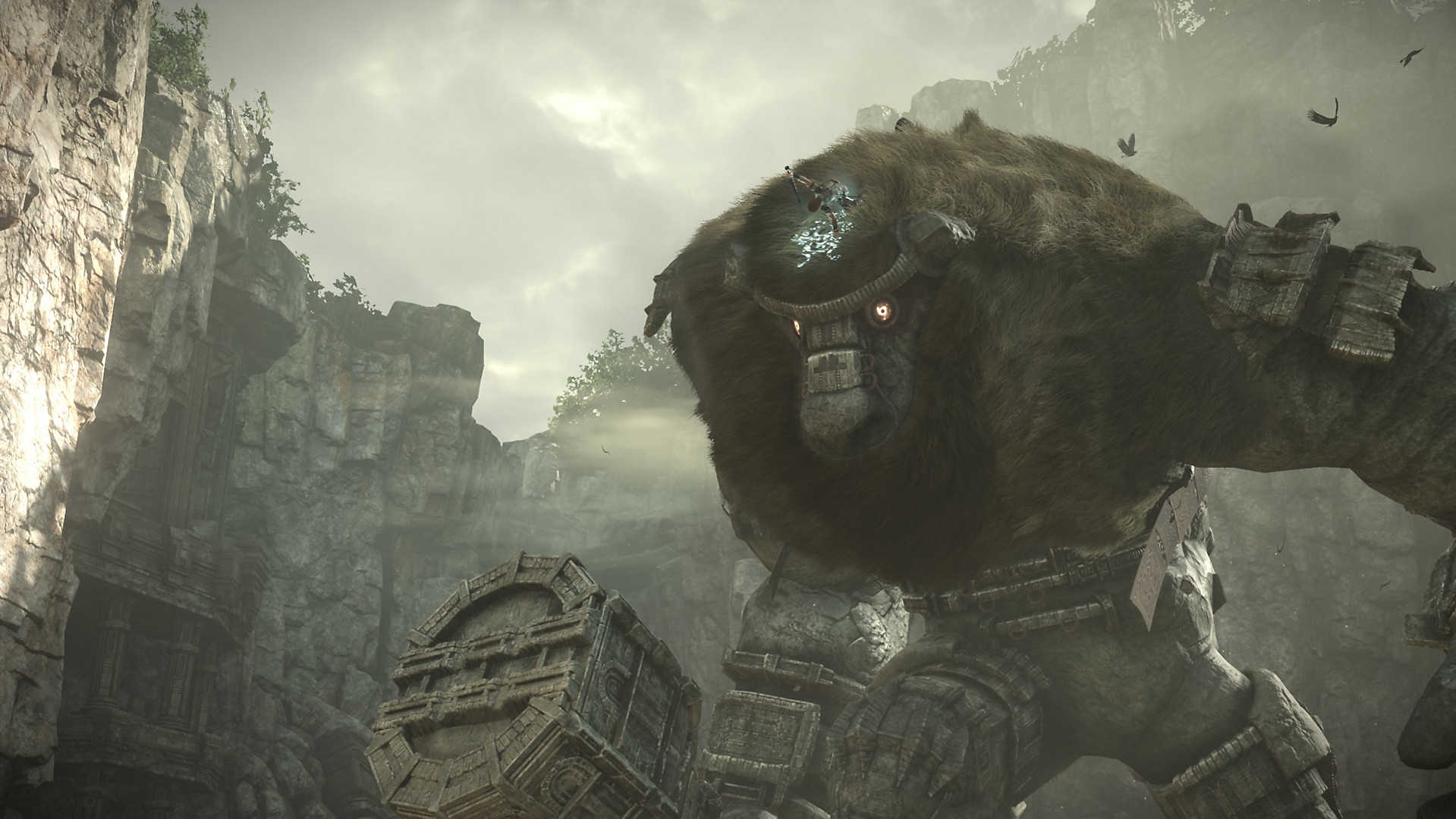
SotC is framed as a traditional fantasy narrative, but feels utterly unlike one. The goal of Wander, our protagonist, is to save the princess (Momo) by slaying a series of colossi. It’s a bog-standard story: kill the dragon, save the girl, like Perseus. Or Shrek. Except it becomes very clear that this isn’t that kind of feel-good fairy tale. Wander immediately makes a deal with… a shady supernatural being, at best. The colossi Wander is tasked to kill range from large beast to literal terrain-sized behemoths, but they almost always display an animal or childlike curiosity, and they are never aggressive unless provoked. And as they are defeated, the music turns somber, and you know that you have done something wrong. Killed a majestic beast that was once peaceful. A piece of the land itself, almost, destroyed, the natural order of things eternally disrupted. It’s not a coincidence that the placement of each colossus’ weak points almost always ends with Wander at the head, the camera spinning and then locking in to show each colossus’ human visage as he stabs it in the skull repeatedly. This is not a game of faceless deaths— you’ll stare every kill right in the eye as you show them their demise.
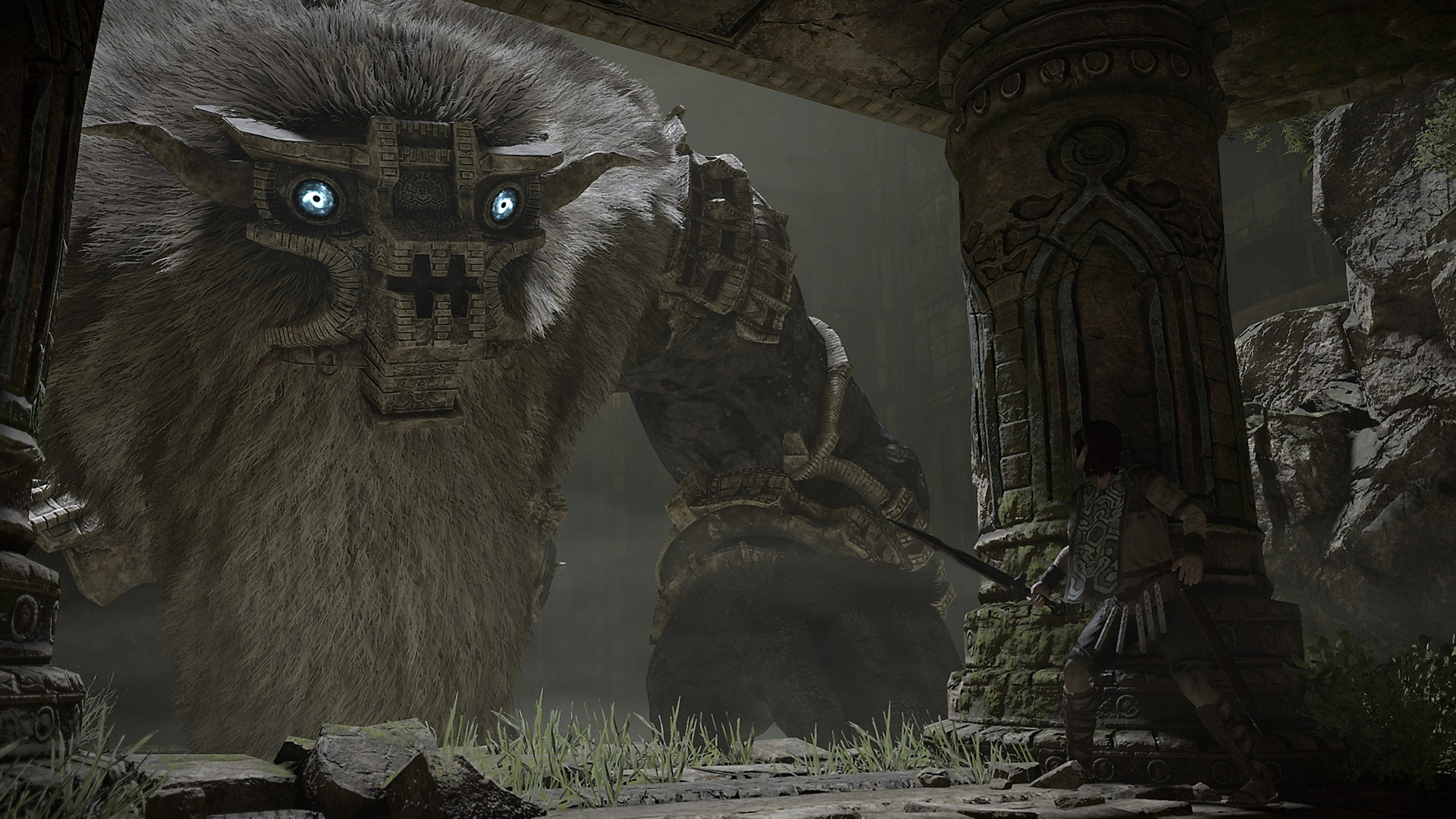
I could go on, but what is there to be said about Shadow of the Colossus that hasn’t already been said? Everything from its picturesque, serene, and idyllic landscapes to its incredible soundtrack have already received all of the praise. Bluepoint preserved and enhanced the minor details as well— Wander’s amateurish swordplay was even more obvious, especially compared to his expert marksmanship and horse-riding, making his play to steal the sword and rescue Mono feel even a little bit more desperate than it had all those years ago. His exhaustion as he pushes himself up off of a save shrine made my heart twinge a little, honestly, imagining everything he had sacrificed to get there.
It was shocking to me how natural the game felt. I could recognize the paths I needed to take to each colossus almost subconsciously, despite having last completed the game half a decade ago. My palms were as sweaty as they had been back then, too, though I don’t remember dying more than a handful of times. But when I finished the game and set down my controller, the wave of melancholy hit me just as hard as it did the first time I finished this game. A masterpiece, through and through.
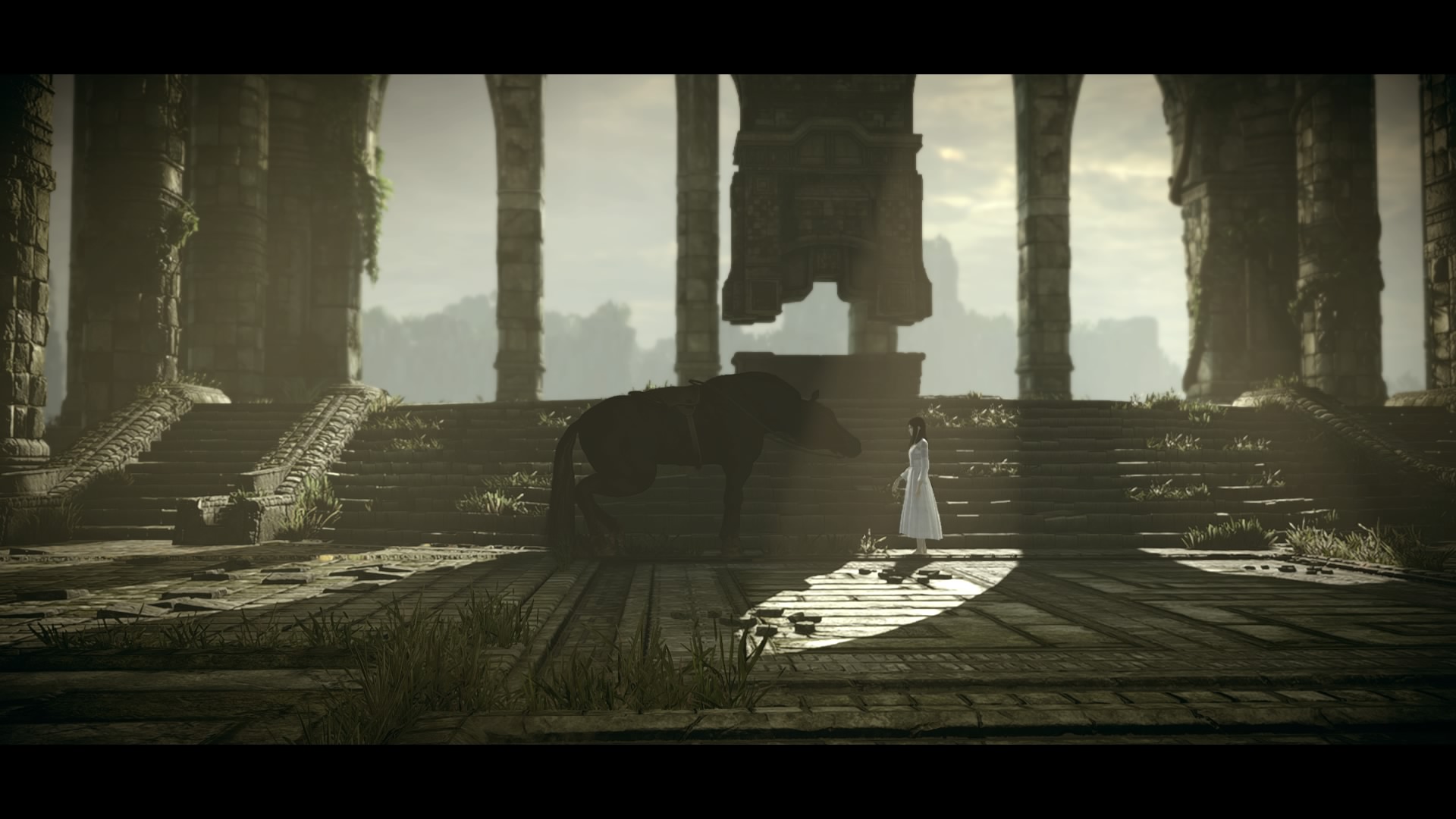
Before My Final Game…
None of the games I mentioned previously were in any sort of order, but the last game on this list is my singular game of the year. But before revealing my choice, I’d like to do a quick run-through of every other 2018 release that I spent a notable amount of time with.
Super Smash Bros. Ultimate (Switch): I apologize in advance for this horrendously elitist take, but playing this game just makes me wish I was playing Melee. It’s still undoubtedly the greatest Smash ever for casual or singleplayer fun, the roster is incredible, it’s a significant upgrade over Smash 4… and still, Melee feels better to me on a core gameplay level in every single way. Someday, I hope I can move on from that relic from 17 years ago… but not today.
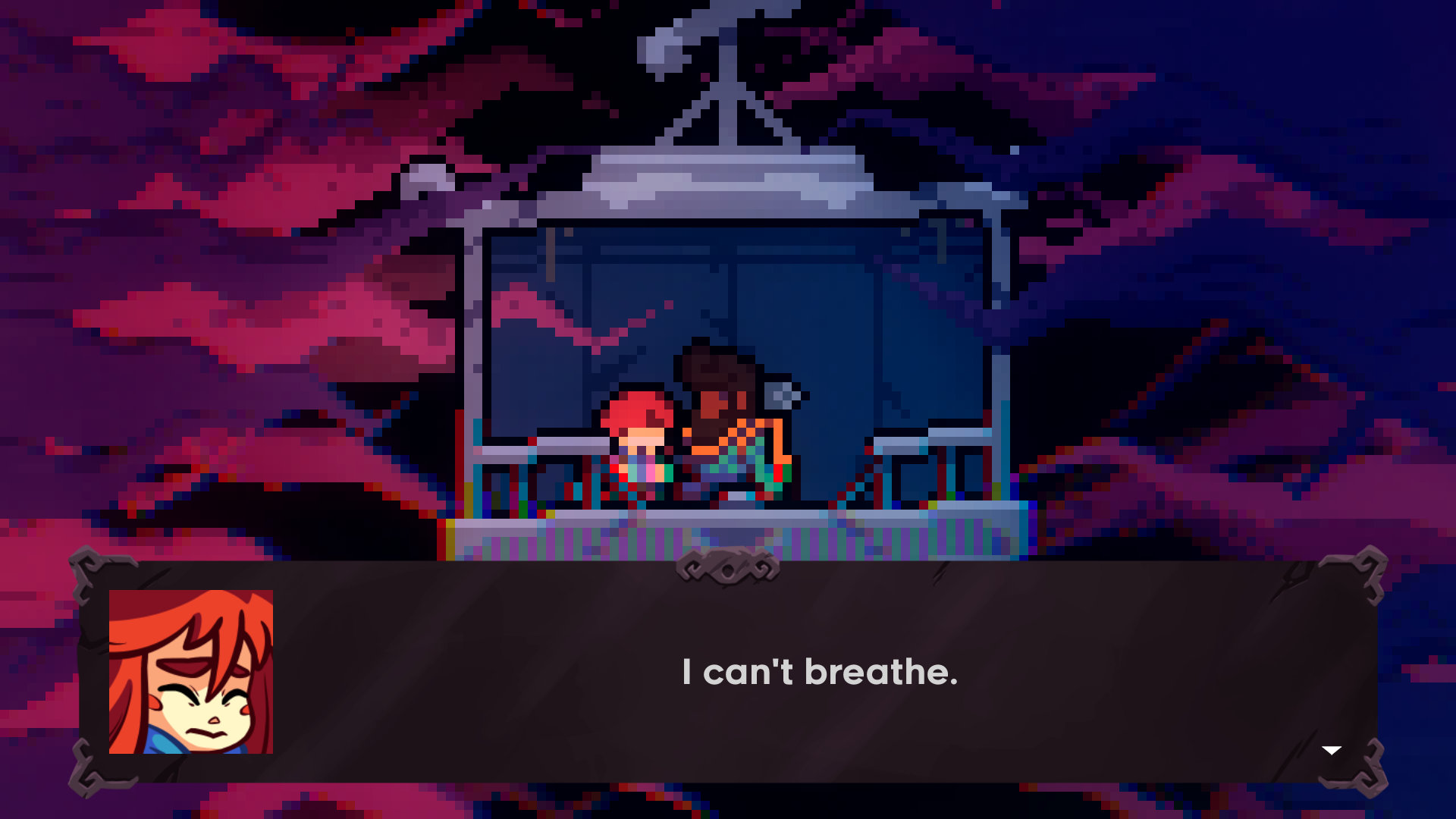
Celeste (Switch): I’ll be the first to admit that I’m not the biggest fan of platformers on the whole. Celeste was a tight experience, but I didn’t find any of the platforming revolutionary or particularly interesting—it felt like Super Meat Boy but with a superdash of set length and direction, except instead of levels it was mostly seamless (I acknowledge that there were keys and such, but I hardly felt that the traversal was ever really meaningful). Celeste had the largest gap between my personal enjoyment and overall critical reception, though I want to stress that I still thought it was good, just not world-class.
Monster Hunter: World (PS4): I loved MH:W, but I don’t think I really played enough to say I completed it and experienced it in full. Great combat, great monster design. Just a satisfying game to play, be it with friends or alone.
Pillars of Eternity II: Deadfire (PC): Never got around to finishing this. I played the first, but Pillars felt very dry and lore-heavy to me, and once I stopped playing, it was hard to get myself back into the groove. Maybe someday.

Call of Duty: Black Ops 4 (PS4): I hadn’t bought a Call of Duty since, I think, Modern Warfare 2, and hadn’t played a FPS seriously since Battlefield 3. I still suck, but Blackout is great fun with friends and CoD is still good multiplayer fun in short bursts.
Marvel’s Spider-Man (PS4): An excellent portrayal of Peter Parker, with a game that just lacked that extra layer of depth in a lot of regards to make it a top-tier experience. Web-slinging was highly automated even though it was satisfying, combat didn’t feel as dynamic as, say, Arkham due to air-launching rendering you largely immune to targeting, and the story was good but didn’t reach that next level. However, I have to shout out Martin Li’s voice actor, Stephen Oyoung, who in my opinion did an absolutely fantastic job. He had that controlled, educated middle-age Asian-American male diction and tone that was just uncannily real to me and relatable to me.
Dark Souls Remastered (PS4, Switch): It’s one of the greatest games ever, remastered. Play it on the Switch for the portability or the other platforms if you care about 60 FPS (I played it on both platforms, and I vouch for both).
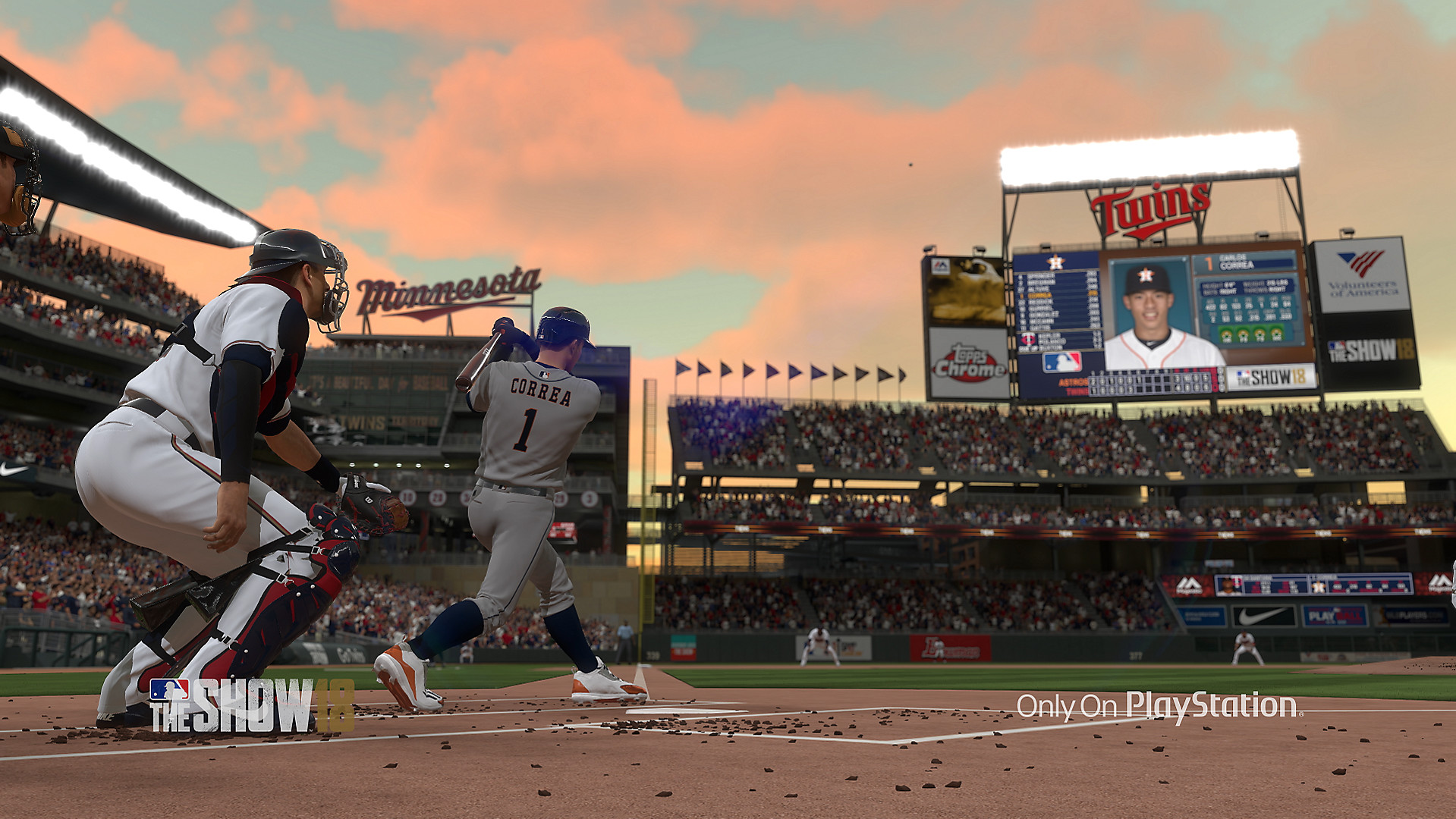
MLB The Show 18 (PS4) and Madden NFL 18 (PS4): It’s baseball. And football. I don’t follow these franchises religiously enough to say whether these entries were any better or worse than prior years (yes, MVP Baseball 2005 and NFL 2K5 are still the best), but I enjoyed my time with both.
Slap City (PC) and Icons: Combat Arena (PC): As part of my article to explore non-Smash platform fighters, I played a good amount of both of these games. Slap City was the Melee-inspired game I didn’t know I wanted; Icons was the Melee-inspired game I knew I didn’t want.
Miscellaneous Games I Played a Lot of This Year
Yu-Gi-Oh! Duel Links (PC, Android): Steam says I’ve played 432 hours of this game. I don’t even want to think about the hours I’ve spent on mobile. I also don’t want to look at my Google Play account and see how much I’ve spent on it. I finally quit cold turkey two months ago, when Synchros were added, but… it was honestly really fun while it lasted, as degenerate as Yu-Gi-Oh! can be as a card game.
Sentinels of the Multiverse (PC): I own this game physically, but I’ve been playing it online with a college friend who lives in Atlanta now, and it’s kind of a blast. It’s not particularly deep, but it’s a fun game to unwind to after work.
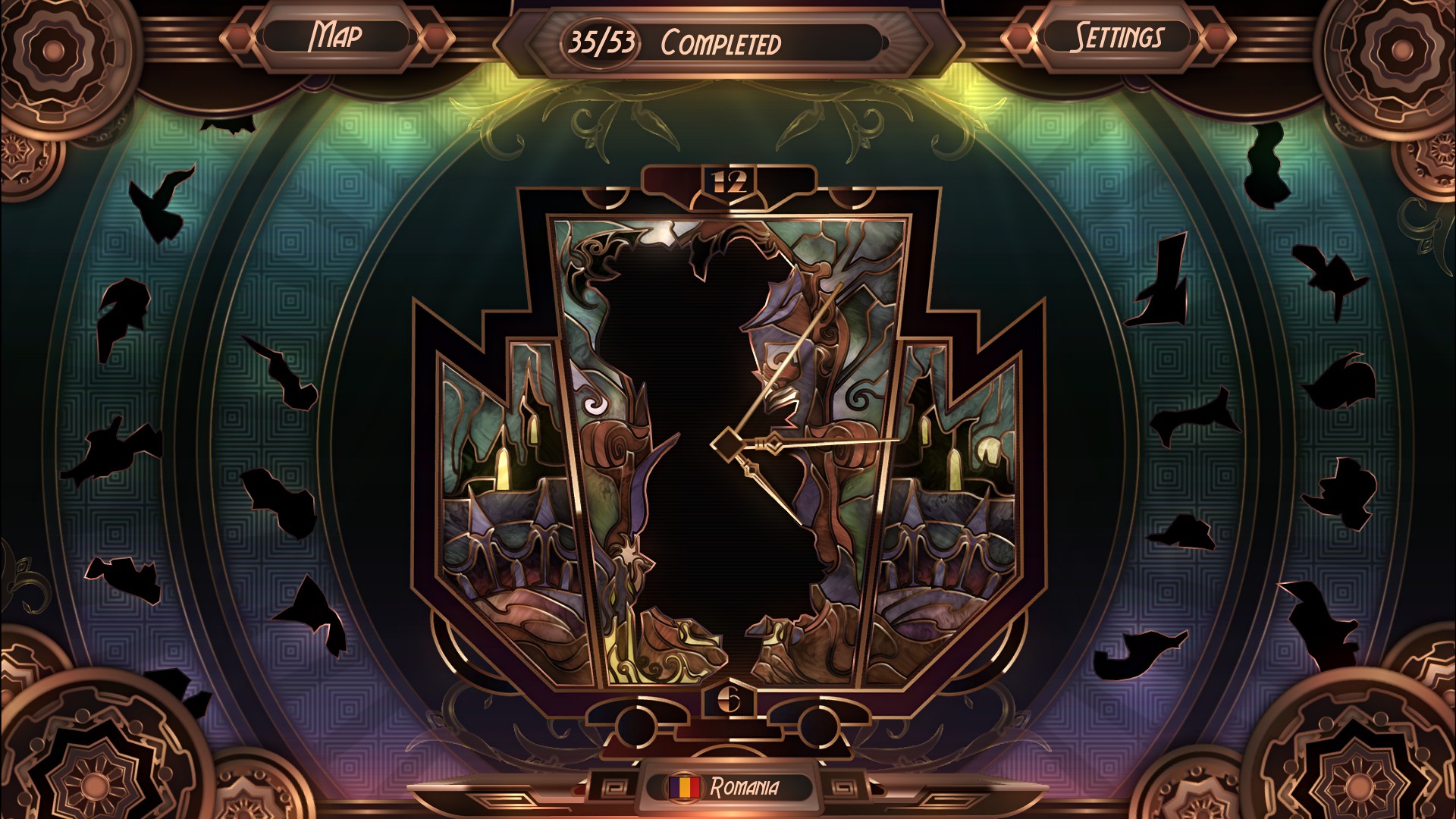
Glass Masquerade (PC): It’s literally just stained-glass puzzles. Like the kind with 200 pieces that you put together. It’s super chill and great for unwinding before you go to sleep, though.
RUINER (PC): Love the aesthetic, the vibe, all of the external elements. Gameplay is also good too, though I think I developed minor tendinitis from it—I’m not used to using the mouse that much.
Super Smash Bros. Melee (GameCube, Wii, Dolphin): I’ll let Mew2king speak (tweet?) for me.
Melee is the best video game of all time. I doubt I'll ever change my opinion on this, even way after i stop playing.
— Jason Zimmerman (@MVG_Mew2King) January 2, 2016
Disappointments of the Year (for Me)
The Xbox One and the Nintendo Switch: I apologize, again, for a take that seems particularly partisan (I don’t even like Sony on a personal level!). However, I didn’t have a single reason to turn on my Xbox One this entire year (and I know that Sam literally said to not say things like this in an earlier article). Yes, Forza Horizon 4 deserves all of the praise, but racing games have never been my thing. It was a year where Microsoft made a ton of forward-thinking choices, namely their implementation of Game Pass, but as far as the games went for me personally, it was a disappointing year. I don’t want to harp on Microsoft’s lack of exciting exclusives this year because it’s a belabored point, but still. It was pretty bad. I hope Microsoft can win me over next generation.
As for the Switch, I finally purchased one later this year and was kind of appalled at the lack of basic functionality built into the system and its online. The fact that the only thing I can do with my Switch and my online friends is look at the amount of hours they’ve put into the games they’ve played is kind of… embarrassing. I like the games enough, but one would hope that, almost two years into the Switch’s lifespan, the console’s core functionalities would be in better shape.
Sony and cross-play: Just because the PS4 was my most-played non-Melee console doesn’t mean they’re exempt from criticism. This was just a stupid, selfish, anti-consumer approach and I’m glad Sony (eventually) caved. Let’s hope cross-play for multi-platform multiplayer games becomes a standard next generation.
The whole Battlefield V fiasco: I’m not a big Battlefield fan, not since 3, but I’ve never had anything against the series. I found the whole “woman on the cover” controversy to be incredibly depressing and a terrible showing for “gamers” as a whole. The misogyny-as-historical-accuracy, the seemingly never-ending backlash-to-the-backlash cycle, EA stoking the fire with their “just don’t buy the game” comment, people delighting in its lower sales figures, all of it was just… tiring and awful, from the outside looking in.
RIP, Telltale: I don’t know enough about the company culture, management, etc., to give a proper post-mortem. All I can say is that as derivative as they were getting, I enjoyed their games and it’s sad to see them go. Hopefully other studios can fill their niche.
Anyway, let’s get to the point.
My Game of the Year: God of War (PS4)
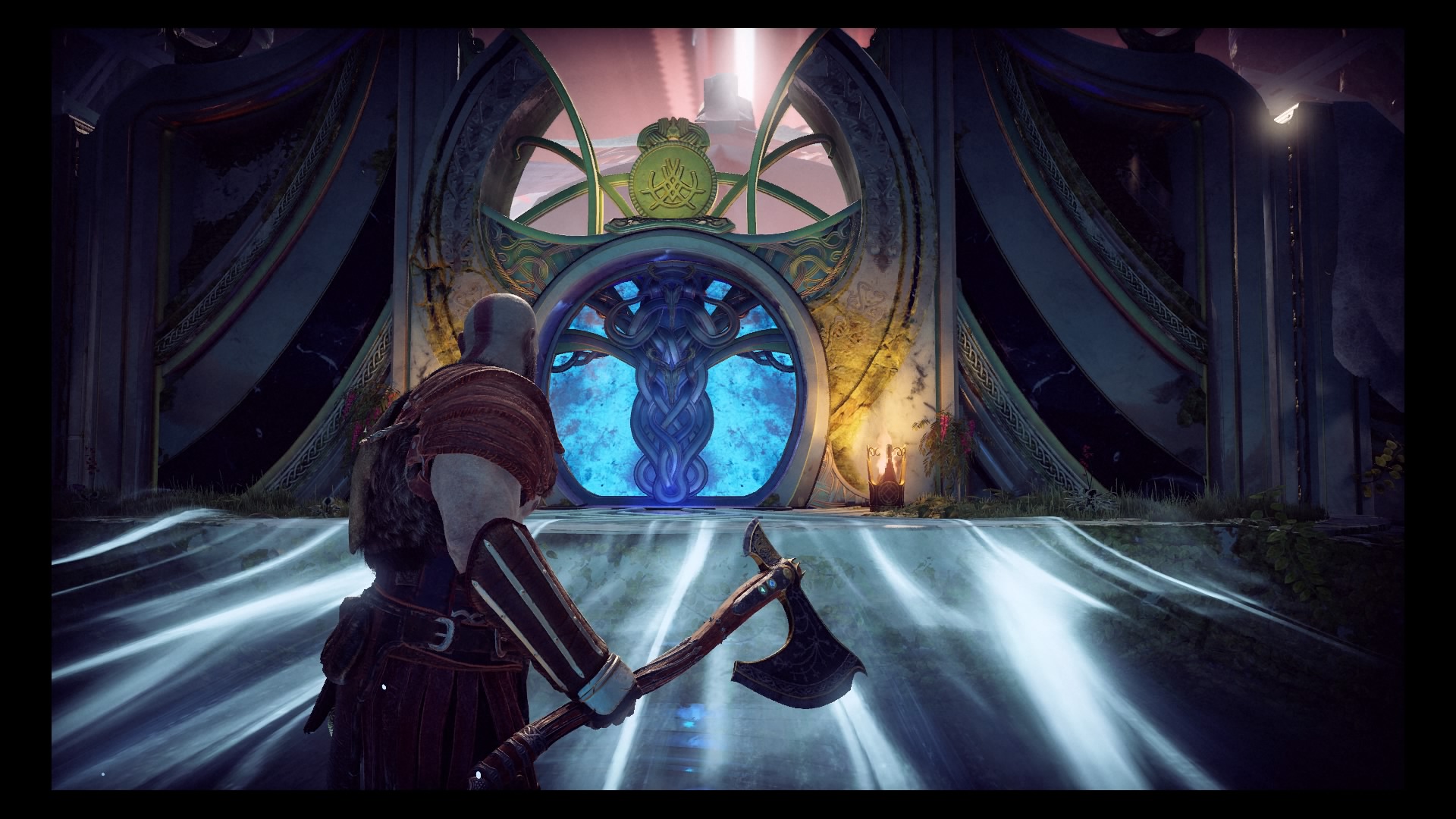
Like many others, I’ll start off my piece on God of War by saying that this was not what I expected from God of War. Studio Santa Monica didn’t try to smooth out the edges and play around what Kratos and God of War had been in the past—entertaining, but still utterly juvenile, crass, and lauded in a way that only a work in a nascent medium like video games could be. A common element I felt in several games I played this year was that feeling of simmering tension, the ever-present fear that a character was one moment, one slip away, on the verge of becoming or regressing towards a familiar, yet terrible, version of themselves. Cory Barlog and his team saw that for Kratos to move forward, they couldn’t ignore his past—and it resulted in an amazingly successful tonal shift for the franchise moving forward.
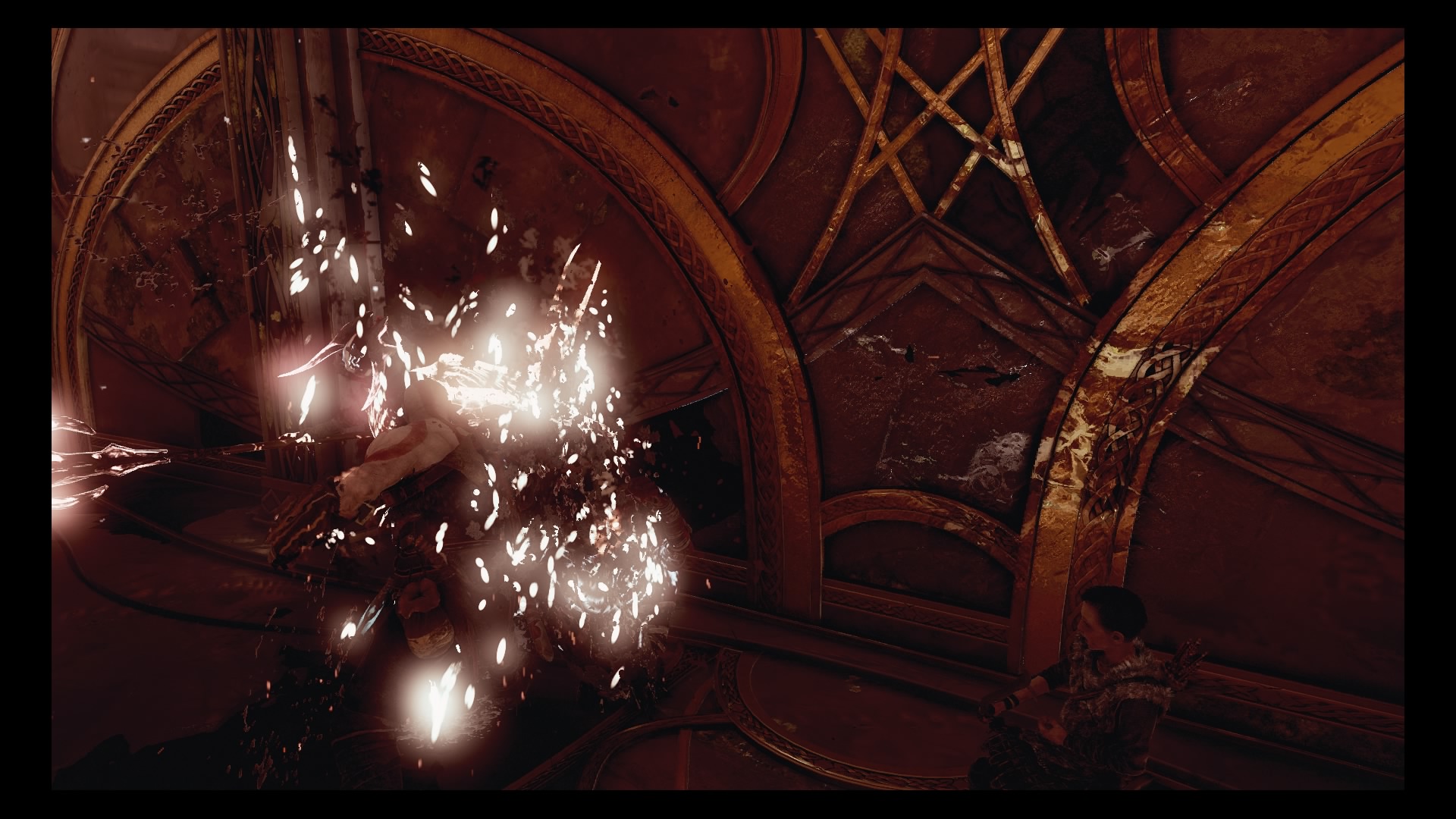
On the gameplay front, I enjoyed the newer, more controlled flavor of hack-and-slash gameplay that this Nordic Kratos offered. I was skeptical of the move to pull the camera close and tighter above the shoulder, but it made the game feel more limited and calculated, just as this Kratos is compared to his raging counterpart of the past. In the prior games, I never felt as if I was quite in control; I was aware of the different moves and combos but was still more of a button-mashing fiend than a controlled and calculated player. Combat in God of War is more about being deliberate than it is about overwhelming enemies (though there’s plenty of that too). Once your sense of risk-reward has been calibrated and dialed back a bit, the combat really clicks and becomes a rhythmic dance, with Atreus providing just enough assistance to keep things from feeling too difficult.
Is God of War flawless? No. It can’t quite fully escape some of what I consider to be meaningless AAA-trappings, like a tad bit too many Leviathan Axe-based puzzles, collectibles, and unnecessary number-crunchy RPG elements. But overall, God of War was a hugely unexpected surprise and one of the most sincere and satisfying single-player games I’ve ever played.
On to 2019
2019 looks to be a transition year for Sony and Microsoft, as they begin to lay the groundwork for the transition to the next generation of PlayStation and Xbox. Meanwhile, the Switch will be entering what should be its prime in its third year on the market. The roadmap ahead for 2019 isn’t very clearly defined at all—very few games have set-in-stone 2019 dates. That being said, a bit of a respite would be nice as I try to conquer, as this website’s name points to, some of the games in my massive backlog. Here’s to 2019 being another amazing year of games (and to talk about reality for a moment, for it to be a less shitty year than 2018 or 2017).
Huge video game, comic book, and anime fan. Spends way too much time watching things he doesn’t like. Hates Zack Snyder. Mains Falco.


